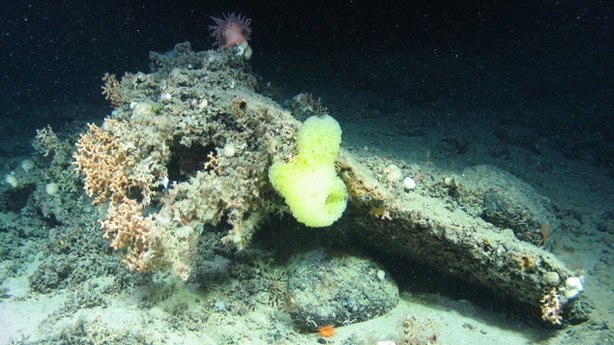Researchers from NUI Galway are hoping that samples gathered from the bed of the Atlantic can be used to develop new treatments for a range of medical conditions.
Marine scientists are examining material gathered on the latest deep sea expedition off the Mayo coast.
Their research voyage focused on an area on the edge of the continental shelf, around 100km west of Belmullet.
During the course of their trip, sponge and octocoral samples were gathered by the Marine Institute’s Holland I remotely operated vehicle (ROV).
The organisms produce chemicals to defend themselves from other marine life. It’s hoped that the structures of these chemicals can be used to develop new drugs.
Researchers in Galway will work with colleagues from a number of other institutes around the world to see if the extracted materials can play a part in tackling various types of cancer, as well as Huntington’s disease, Parkinson’s and epilepsy.
VIDEO: Pristine. Deep, deep down. 100 km west of Belmullet, Co. Mayo.
— Pat McGrath (@patmcgrath) September 3, 2018
Amazing footage from the latest @NUIGalway & @MarineInst research voyage.
Music: 'They Sink' by @ÓlafurArnalds
more on @rtenews pic.twitter.com/1XKDwNol6r
In addition to gathering samples, scientists mapped the biodiversity of the sea floor. The area in question was selected after previous voyages indicated that the location was particularly sponge rich.
It’s thought that the naturally produced chemicals at such depths could have different benefits to those found in shallower waters.
One of the researchers on the latest expedition, Dr Joana Xavier, described the diversity of sponges in the waters off the west coast as "absolutely incredible". She said the sites that were surveyed were in pristine condition.
Other structural habitats such as cold-water coral reefs and gardens were also found during the cruise. These assist in the maintaining the complex diversity in the area.








